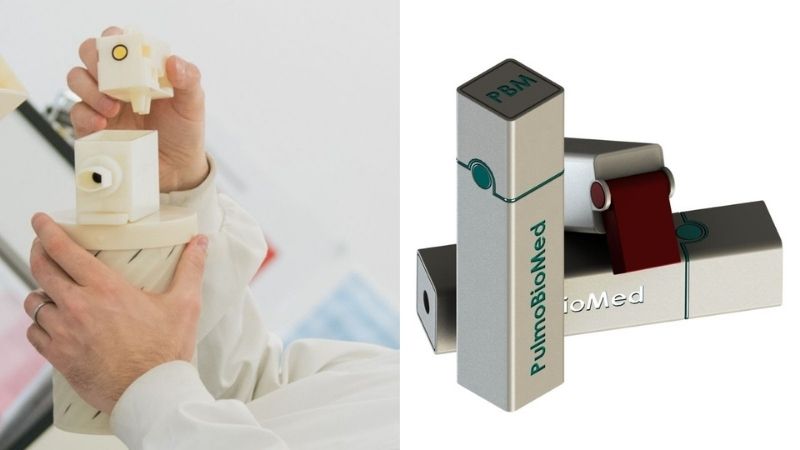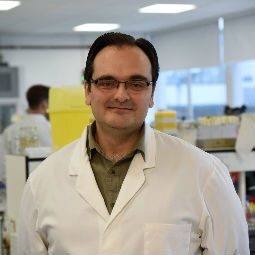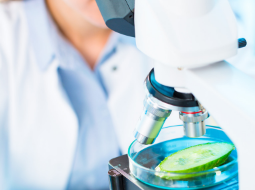-
Study
-
Quick Links
- Open Days & Events
- Real-World Learning
- Unlock Your Potential
- Tuition Fees, Funding & Scholarships
- Real World Learning
-
Undergraduate
- Application Guides
- UCAS Exhibitions
- Extended Degrees
- School & College Outreach
- Information for Parents
-
Postgraduate
- Application Guide
- Postgraduate Research Degrees
- Flexible Learning
- Change Direction
- Register your Interest
-
Student Life
- Students' Union
- The Hub - Student Blog
- Accommodation
- Northumbria Sport
- Support for Students
-
Learning Experience
- Real-World Learning
- Research-enriched learning
- Graduate Futures
- The Business Clinic
- Study Abroad
-
-
International
International
Northumbria’s global footprint touches every continent across the world, through our global partnerships across 17 institutions in 10 countries, to our 277,000 strong alumni community and 150 recruitment partners – we prepare our students for the challenges of tomorrow. Discover more about how to join Northumbria’s global family or our partnerships.
View our Global Footprint-
Quick Links
- Course Search
- Undergraduate Study
- Postgraduate Study
- Information for Parents
- London Campus
- Northumbria Pathway
- Cost of Living
- Sign up for Information
-
International Students
- Information for International Students
- Northumbria and your Country
- International Events
- Application Guide
- Entry Requirements and Education Country Agents
- Global Offices and Regional Teams
- English Requirements
- English Language Centre
- International student support
- Cost of Living
-
International Fees and Funding
- International Undergraduate Fees
- International Undergraduate Funding
- International Masters Fees
- International Masters Funding
- International Postgraduate Research Fees
- International Postgraduate Research Funding
- Useful Financial Information
-
International Partners
- Agent and Representatives Network
- Global Partnerships
- Global Community
-
International Mobility
- Study Abroad
- Information for Incoming Exchange Students
-
-
Business
Business
The world is changing faster than ever before. The future is there to be won by organisations who find ways to turn today's possibilities into tomorrows competitive edge. In a connected world, collaboration can be the key to success.
More on our Business Services-
Business Quick Links
- Contact Us
- Business Events
- Research and Consultancy
- Education and Training
- Workforce Development Courses
- Join our mailing list
-
Education and Training
- Higher and Degree Apprenticeships
- Continuing Professional Development
- Apprenticeship Fees & Funding
- Apprenticeship FAQs
- How to Develop an Apprentice
- Apprenticeship Vacancies
- Enquire Now
-
Research and Consultancy
- Space
- Energy
- AI Futures
- CHASE: Centre for Health and Social Equity
- NESST
-
-
Research
Research
Northumbria is a research-rich, business-focused, professional university with a global reputation for academic quality. We conduct ground-breaking research that is responsive to the science & technology, health & well being, economic and social and arts & cultural needs for the communities
Discover more about our Research-
Quick Links
- Research Peaks of Excellence
- Academic Departments
- Research Staff
- Postgraduate Research Studentships
- Research Events
-
Research at Northumbria
- Interdisciplinary Research Themes
- Research Impact
- REF
- Partners and Collaborators
-
Support for Researchers
- Research and Innovation Services Staff
- Researcher Development and Training
- Ethics, Integrity, and Trusted Research
- University Library
- Vice Chancellors Fellows
-
Research Degrees
- Postgraduate Research Overview
- Doctoral Training Partnerships and Centres
- Academic Departments
-
Research Culture
- Research Culture
- Research Culture Action Plan
- Concordats and Commitments
-
-
About Us
-
About Northumbria
- Our Strategy
- Our Staff
- Our Schools
- Place and Partnerships
- Leadership & Governance
- University Services
- Northumbria History
- Contact us
- Online Shop
-
-
Alumni
Alumni
Northumbria University is renowned for the calibre of its business-ready graduates. Our alumni network has over 253,000 graduates based in 178 countries worldwide in a range of sectors, our alumni are making a real impact on the world.
Our Alumni - Work For Us
Scientists at Northumbria University have worked with the institution’s Research and Innovation Services to launch a medtech spinout company whose lead product for collecting breath samples could revolutionise diagnosis of a range of diseases, including Covid-19.
Northumbria’s Associate Professor Dr Sterghios Moschos, founder and PulmoBioMed’s Chief Scientific Officer, is supported by Chief Executive Officer Dr Pete Hotten, 20 years Board level management experience, Chief Operating Officer Jonathan Brookes, a Northumbria University alumnus with 15 years working in the medical device industry, and Chair, Dr Huw Edwards, with over 30 years of global experience in emerging diagnostic technologies.
Taking disruptive technology to market
The first of a series of products, PBM-Hale™ is a hand-held aerosol collecting device that allows sampling of the lung in a non-invasive way - by patients simply breathing into it.
To date, all products used for collecting breath samples have issues relating to contamination, sample loss and variability. The PBM-Hale™ technology resolves these issues, with devices currently being trialled in clinical centres across Europe.
Professor George Marston, Pro Vice-Chancellor (Research and Innovation) at Northumbria University, said: “This technology has the potential to deliver huge impact in healthcare on a global scale. We are a university ambitious to get our innovations out to the market to make a difference, and we encourage and support that process. This new business reflects the hard work of our entrepreneurial staff and the pioneering research we are doing at Northumbria University.”
The process of taking academic technology to create PulmoBioMed was made possible by support from Northern Accelerator, a collaboration between Northumbria, Durham, Newcastle and Sunderland Universities to commercialise research and boost the region’s economy.
Northern Accelerator’s ‘Proof-of-Concept’ funding supported the development of a first functional prototype. Northumbria graduate, Saqib Ali, was appointed as a Design Engineer at PulmoBioMed and carried out the rapid prototyping of PBM-HALE™ using 3D printers within the University’s engineering labs.
A second Northern Accelerator initiative, ‘Executives into Business’, supported the onboarding of the executive team, and a third programme of support, ‘Future Founders’, provided business training.
PulmoBioMed also benefitted from North by Northwest Partner’s ‘Innovation to the Commercialisation of University Research’ (ICURe) programme, which helped validate the market for the spinout’s technology. The company has additionally won funding from Innovate UK to support the first 18 months of business development activities.
PulmoBioMed is now seeking to close a £2.5m initial equity capital raise.
Pivotal partnerships to deliver real world impact
In November, PulmoBioMed entered into a partnership agreement with DeepVerge plc, a company specialising in the use of artificial intelligence to detect, analyse and identify more than 2700 pathogens in clinical research, medical device, environmental and life science equipment. The partnership combines the breathalyser PBM-HALE™ with DeepVerge’s ‘MicrotoxBT’ – a micro-engineered nano-fluidic chip to detect viruses, bacteria, toxins and parasites in drinking and wastewater and identifies specific targets which includes SARS-CoV-2, within breath condensate samples in less than 90 seconds.
This collaboration is the beginning of a joint development program that will use multiplex bio-marker binding agents to analyse breath for 40 other diseases which include cancer, neurodegenerative, respiratory and metabolic conditions.
Dr Pete Hotten, CEO of PulmoBioMed, said: “PulmoBioMed is already recognised as best-in-class by analytical technology companies who are engaged in joint product development projects with the Company. Our focus is the development and commercialisation of breath sampling technology for integration with multiple partners analytical platforms in parallel with core healthcare applications.
“Future applications in the biosecurity and veterinary sectors will see PulmoBioMed seek to work with key partnerships in order to accelerate product development.”
Gerard Brandon CEO of DeepVerge plc, said: “When the scientific team at our York laboratories evaluated the breathalyser PBM-HALE™ device, we decided that there was greater opportunity to get a finished Covid-19 detection breathalyser system to the market faster by integrating the PulmoBioMed equipment into our Microtox Breath Test system. We are delighted to work with Dr Sterghios Moschos and his team and invest considerable resources in our joint development project and future collaboration on a range of real-time breath sample disease detection systems.”

PBM-HALE™ (left) is currently being evaluated in European hospitals to demonstrate where aerosolised virus arises from in infected individuals. PulmoBioMed are working to reduce the product into a lipstick-sized device (concept version on the right).
News
- Working-class roots drive North East graduate’s AI healthcare revolution
- National Fellowship honours Northumbria nursing leader
- Venice Biennale Fellowship
- First cohort of Civil Engineering Degree Apprentices graduate from Northumbria
- Northumbria expands results day support for students
- Northumbria academic recognised in the British Forces in Business Awards 2025
- £1.2m grant extends research into the benefits of breast milk for premature babies
- Northumbria graduate entrepreneur takes the AI industry by storm
- Study identifies attitudes towards personal data processing for national security
- Lifetime Brands brings student design concept to life
- New study reveals Arabia’s ‘green past’ over the last 8 million years
- How evaluation can reform health and social care services
- Researchers embark on a project to further explore the experiences of children from military families
- Northumbria University's pioneering event series returns with insights on experiential and simulated learning
- Support for doctoral students to explore the experiences of women who have been in prison
- Funding boost to transform breastfeeding education and practice
- A new brand of coffee culture takes hold in the North East
- BBRSC awards £6m of funding for North East Bioscience Doctoral Students
- £3m funding to evaluate health and social care improvements
- Balfour Beatty apprentices graduate from Northumbria University
- Long COVID research team wins global award
- Northumbria researchers lead discussions at NIHR event on multiple and complex needs
- Healthcare training facility opens to support delivery of new T-level course
- Young people praise Northumbria University for delivery of HAF Plus pilot
- Nursing academics co-produce new play with Alphabetti Theatre
- Research project to explore the experiences of young people from military families
- Academy of Social Sciences welcomes two Northumbria Professors to its Fellowship
- Northumbria University set to host the Royal College of Nursings International Nursing Research Conference 2024
- 2.5m Award Funds Project To Encourage More People Into Health Research Careers
- Advice available for students ahead of A-level results day
- Teaching excellence recognised with two national awards
- Northumbria law student crowned first Apprentice of the Year for the region
- Northumbria University launches summer activities to support delivery of Holiday Activities and Food programme
- UK health leader receives honorary degree from Northumbria University
- Use of AI in diabetes education achieves national recognition
- Research animation explores first-hand experiences of receiving online support for eating disorders
- Careers event supports graduate employment opportunities
- Northumbria University announces £50m space skills, research and development centre set to transform the UK space industry
- The American Academy of Nursing honours Northumbria Professor with fellowship
- New report calls for more support for schools to improve health and wellbeing in children and young people
- AI experts explore the ethical use of video technology to support patients at risk of falls
- British Council Fellows selected from Northumbria University for Venice Biennale
- Prestigious nomination for Northumbria cyber security students
- Aspiring Architect wins prestigious industry awards
- Lottery funding announced to support mental health through creative education
- Early intervention can reduce food insecurity among military veterans
- Researching ethical review to support Responsible AI in Policing
- Northumbria named Best Design School at showcase New York Show
- North East universities working together
- Polar ice sheet melting records have toppled during the past decade
- Beyond Sustainability
- Brewing success: research reveals pandemic key learnings for future growth in craft beer industry
- City's universities among UK best
- Famous faces prepare to take to the stage to bring a research-based performance to life
- Insights into British and other immigrant sailors in the US Navy
- International appointment for law academic
- Lockdown hobby inspires award-winning business launch for Northumbria student
- Lasting tribute to Newcastle’s original feminist
- Outstanding service of Northumbria Professor recognised with international award
- Northumbria academics support teenagers to take the lead in wellbeing research
- Northumbria University becomes UK's first home of world-leading spectrometer
- Northumbria's Vice-Chancellor and Chief Executive to step down
- Out of this world experience for budding space scientists
- Northumbria engineering graduate named as one of the top 50 women in the industry
- Northumbria University signs up to sustainable fashion pledge
- Northumbria demonstrates commitment to mental health by joining Mental Health Charter Programme
- Virtual reality tool that helps people to assess household carbon emissions to go on display at COP26
- EXPERT COMMENT: Why thieves using e-scooters are targeting farms to steal £3,000 quad bikes, and what farmers can do to prevent it
- Exhibition of lecturer’s woodwork will help visitors reimagine Roman life along Hadrian’s Wall
- Students reimagine food economy at international Biodesign Challenge Summit
- Northumbria storms Blackboard Catalyst Awards
- Breaking news: Northumbria’s Spring/Summer Newspaper is here!
- UK’s first ever nursing degree apprentices graduate and join the frontline
- Massive decrease in fruit and vegetable intake reported by children receiving free school meals following lockdown
- Northumbria awards honorary degrees at University’s latest congregations
Associate Professor
The Department of Applied Sciences has an exciting and extensive portfolio of subjects including biology, biomedical sciences, chemistry, forensic science, food and nutritional sciences.
This is the place to find all the latest news releases, feature articles, expert comment, and video and audio clips from Northumbria University
Latest News and Features

PhD student maps mysterious upper atmosphere of Uranus for the first time
A Northumbria University PhD student has led an international team of astronomers in creating…

Developing technology to help empower young innovators across the globe
Northumbria University researchers have joined forces with the International Federation of…

Working-class roots drive North East graduate’s AI healthcare revolution
A Northumbria University graduate has developed groundbreaking AI technology that could save…

Families back nationwide school holiday activities programme in record survey
A landmark survey of 20,000 parents and carers has revealed overwhelming support for the Government's…

Scaling-up global solar panel manufacturing sustainably
Pioneering research led by Northumbria University shows how the renewable energy sector can…

Business leaders and universities unite to pave way for a new era of skilled graduate jobs
Leaders from national, international and regional businesses including Greggs, Siemens Energy…

Northumbria Professor recognised for pioneering work on domestic abuse and gender-based violence
A leading legal academic from Northumbria University has been awarded the prestigious title…

International prize for pioneering Down syndrome dementia research
A Northumbria University researcher has won a prestigious international competition to develop…
Upcoming events
On Weaving
Gallery North

EY Degree Apprenticeship Information Event
Northumbria University
-

Next Stop Northumbria
The Queens Hotel
-

Launch of the Northern Interprofessional Education Strategy
Northumbria University
-



